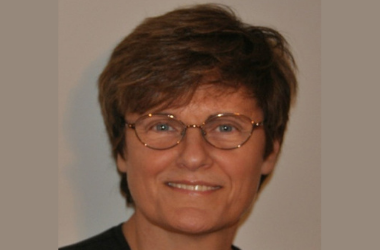Blog
For Women's History Month, we are highlighting a few of the many dedicated women whose work continues to inspire and influence our nation's healthcare and save lives. This is the last in the series.
Katalin Karikó, PhD, is the Hungarian-born scientist whose tireless pursuit of a key mRNA discovery in 2005 led to the vaccine against COVID-19, the 2019 novel coronavirus that is also known as SARS-CoV-2.
Messenger ribonucleic acid, or mRNA, is a molecule that carries instructions (genetic code) on how to make a specific protein from one part of a cell to another, so new cell growth can take place. Dr. Karikó was confident that mRNA could be used in therapeutics (treatment of disease), but she needed to figure out how.
 Dr. Karikó began her pioneering research in 1978, 42 years before her idea became a vaccine. The work was grueling. She spent 16 of those years trying to find the answer at the University of Pennsylvania, where she was on the faculty for 25 years. She applied for numerous grants and was rejected. She received a demotion. Her colleagues doubted her, she doubted herself, and she contemplated giving up, but she was sure she could see something no one else was seeing, so she kept going.
Dr. Karikó began her pioneering research in 1978, 42 years before her idea became a vaccine. The work was grueling. She spent 16 of those years trying to find the answer at the University of Pennsylvania, where she was on the faculty for 25 years. She applied for numerous grants and was rejected. She received a demotion. Her colleagues doubted her, she doubted herself, and she contemplated giving up, but she was sure she could see something no one else was seeing, so she kept going.
According to Laurie M. Cronin, PharmD, RPh, Director of Pharmaceutical Services at Saratoga Hospital, "The culture of the science world is that way for a reason. I think it's good that novel ideas aren't accepted quickly. You need an abundance of caution when exploring new treatments. But, on the other hand, an overcautious pace can slow down the development of life-saving medications."
Dr. Cronin says Sir Alexander Fleming's discovery of the antimicrobial properties of penicillin was initially thought to be too labor intensive, not scalable, and some even believed the work was not really solid.
"Sometimes the timing is just not right," Dr. Cronin says, "so you can't give up. As you persevere, things change and opportunities arise. So people who are going to succeed must be tenacious and patient about what they do and study and discover."
Ultimately, Dr. Karikó and immunologist Drew Weissman, MD, PhD, her long-time collaborator at UPenn, solved the mRNA puzzle in 2005. That solution enabled other researchers to take it from the laboratory into vaccine design, then trials, and then production. Today, millions of people worldwide are receiving the COVID-19 vaccine.
"Dr. Karikó stuck with it all this time and is now seeing the fruits of her labor," Dr. Cronin says. "Whether past or present, it is important we take the time to celebrate women in research because it can be painstakingly difficult, and we need to offer encouragement. Research, as in any field, is highly competitive, but you can still find your own community to help you keep going in the toughest times."
Dr. Karikó is now a senior vice president at BioNTech overseeing its mRNA work. BioNTech is the pharmaceutical firm that partnered with Pfizer to make the first COVID vaccine from mRNA. Other women significantly involved in bringing about the COVID-19 vaccine include:
- Kathrin Jansen, PhD, Senior Vice President and Head of Vaccine Research at Pfizer led a team of 700 researchers to use the new technology to develop a vaccine.
- Immunologist Dr. Kizzmekia Corbett, a research fellow at the National Institutes of Health (NIH), used mRNA technology to help design the COVID-19 vaccine, collaborating with Moderna.
- Lisa Jackson, MD, MPH, principal investigator of vaccine and treatment evaluation at the Kaiser Permanente Washington Health Research Institute, led the very first clinical trial of the new vaccine. She is also investigating whether there is a need for "booster" shots of the vaccine, as well as the vaccine's effectiveness against viral variants of COVID-19.
"The possibilities with mRNA technology are endless," Dr. Cronin says. "There is talk of finding ways to apply it to fighting cancer and other disease. Who knows what may come of Dr. Karikó's passion and perseverance? She put all her skill, talent, time, and even her reputation into an idea that ended up foundational to saving lives in the middle of a pandemic. Others picked up her work and ran with it, and now we have a vaccine against COVID-19."
Dr. Karikó is one of many women, past and present, leading the way in Science, Technology, and Mathematics fields. Dr. Cronin is no stranger to research, either, and she put her skills to use early in the COVID-19 outbreak locally. Last spring, when the nation was running low on the viral transport media used to contain COVID-19 test samples, our pharmacy and laboratory teams collaborated to test, validate, and produce the solution in-house, so we will never run out. Our testing tent has been the longest-running, nonstop, in the Capital Region.
Saratoga Hospital's pharmacists, led by Dr. Cronin, participate in emergency code and pain management teams, join in multidisciplinary rounds, prepare critical medications, oversee preparation of chemotherapy, monitor high-risk patients, and much more. Recently, the team was able to quickly respond to a COVID-19 outbreak at a nursing home in Ft. Edward, NY, providing needed supplies.
Interested in medicine and healthcare? Learn more about the many careers available at Saratoga Hospital on our Careers page at SaratogaHospital.org.

